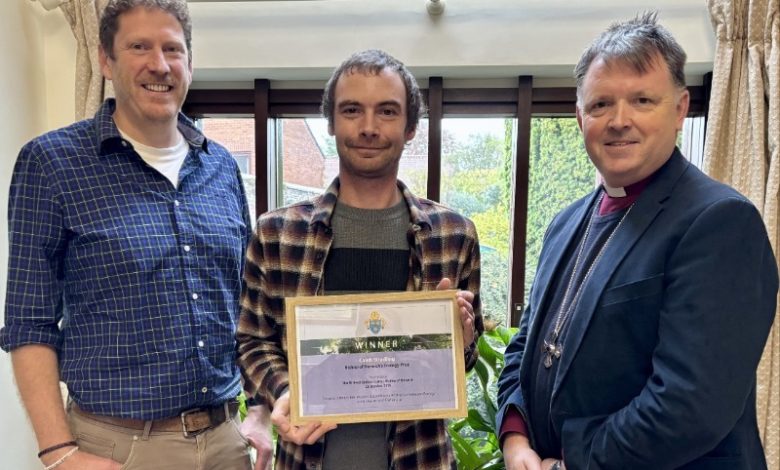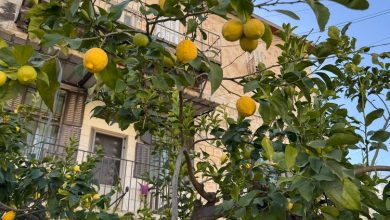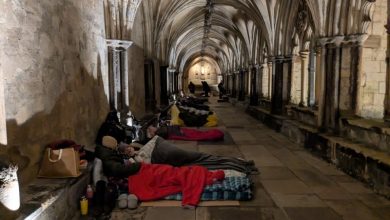Curlews help UEA student win Bishop’s ecology prize

Young Ecologist Awarded Bishop’s Prize for Curlew Conservation Research
Caleb Stradling, a 34-year-old researcher, has been awarded the prestigious Bishop of Norwich’s annual Ecology prize for his outstanding work on nesting curlews. The £1,000 prize recognizes the University of East Anglia student who achieves the highest marks for a masters dissertation in applied ecology and conservation. Caleb’s research focused on analyzing how vegetation and agricultural practices influence curlew survival, contributing vital knowledge to conservation efforts for these endangered birds. His work exemplifies the intersection of scientific research and practical conservation, addressing urgent environmental challenges with rigorous academic inquiry and heartfelt dedication to preserving biodiversity.
The Right Reverend Graham Usher, Bishop of Norwich and the Church of England’s lead bishop for the environment, presented the award with personal investment in the cause. Having studied ecology himself, Bishop Graham expressed that supporting such research aligns with his Christian calling to care for creation. “Caleb’s work is giving curlews the best chance of survival and helping make it possible that generations to come will be able to delight in the beautiful curlew call,” he noted during the ceremony. The award highlights the growing recognition within faith communities of environmental stewardship as a spiritual responsibility, bridging traditional divides between religious practice and scientific endeavor in service of protecting vulnerable species and ecosystems.
For Caleb, the journey to this recognition began with a simple love of birds that drew him to Norfolk, where he had the opportunity to collaborate with renowned ornithologists at UEA. “I became enchanted by the curlew and its evocative bubbling song,” he shared, expressing the personal connection that fuels his scientific work. This passion led him to focus his research on curlews after working with an organization dedicated to saving these birds from extinction. His research addresses a critical conservation challenge: land-use changes have resulted in habitat loss and degradation, placing additional pressure on the already precarious breeding cycle of curlews. In many locations, these birds are not fledging enough chicks to maintain their population, threatening their long-term survival in the wild.
The impact of Caleb’s research extends beyond academic recognition, directly influencing conservation practice through his current full-time position with Curlew Country in Shropshire. The analytical skills developed during his MSc studies are already yielding positive results in the field. The past year has been particularly successful for the project, with five curlew chicks fledging in the wild and an additional 37 head-started curlews released to strengthen the existing population. These tangible conservation outcomes demonstrate how academic research can translate into real-world benefits for endangered species, providing a model for effective conservation that combines scientific understanding with practical intervention strategies tailored to specific ecological contexts.
Professor Simon Butler, who directs the MSc in Applied Ecology and Conservation at the University of East Anglia, emphasized the significance of the award beyond its monetary value. “The award is a really valuable recognition of our students’ hard work. It means a lot to students who often put themselves into quite challenging financial positions in order to progress in this kind of career,” he explained. Many conservation researchers make significant personal sacrifices to pursue their passion for environmental protection, often accepting financial insecurity as part of their commitment to this crucial field. Recognition through awards like the Bishop’s Ecology prize not only provides practical support but also affirms the value of their contributions to addressing pressing ecological challenges.
The prize, sponsored by the Anne French Memorial Trust which supports various initiatives across Norfolk including the ministry of the Bishop of Norwich, represents the power of community backing for conservation work. As Caleb continues his efforts to protect curlews and their habitats, his story illustrates how individual passion, academic rigor, institutional support, and community engagement can combine to make a meaningful difference in conservation outcomes. The plight of the curlew—with its distinctive call that has inspired poets and naturalists for generations—serves as a poignant reminder of what’s at stake in our broader environmental crisis. Through dedicated research and conservation efforts like Caleb’s, there remains hope that future generations will still experience the joy of hearing the curlew’s bubbling song across the landscapes of Britain, preserving not just a species but a living connection to our natural heritage and the ecological systems that sustain us all.









fyeoxj